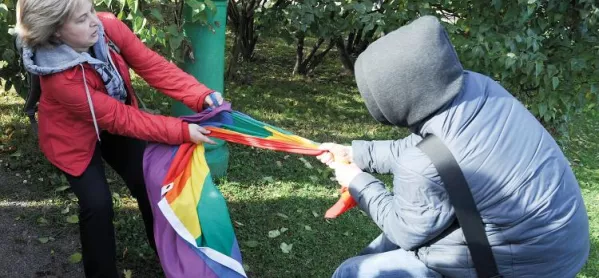Two in five LGBT teachers have experienced bullying, harassment, discrimination or prejudice in their career because of their identity, new research has found.
A survey carried out by the Centre for LGBTQ+ Inclusion in Education at Leeds Beckett University found that, despite unprecedented changes in the legal and social environment over the past two decades, many teachers do not feel safe and welcome in our staffrooms and classrooms.
650 teachers and 250 school leaders who identify as LGBT took part in the survey, which the centre’s leader Jonathan Glazzard promoted on social media. It found:
- 40 per cent of teachers disagreed or disagreed strongly when asked if their school had a culture which “promotes inclusion for LGBTQ staff”
- 40 per cent of teachers said they had experienced bullying, harassment, discrimination or prejudice in their teaching career as a result of being LGBTQ+
- 30 per cent of teachers said their experiences as an LGBTQ+ teacher had had a negative impact on their mental health
- 40 per cent of teachers said they did not feel able to be open about their identity as an LGBTQ+ teacher in their school
Professor Glazzard said: “I think what concerns me is that we know that being a school leader and a teacher is very stressful anyway, and there are a whole range of issues that can result in mental health issues: workload, lack of work-life balance, and also the challenges of leadership anyway, but then this is another layer on top of that.
“If somebody is actually coping with the stresses of being a teacher or leader and yet they have got another layer to deal with on top of that, that’s really worrying.
“You don’t expect these issues to still be evident within current society.”
One LGBT teacher told Tes that her experiences had led her to attempt suicide “more than once”.
She said: “I had things thrown at me down the corridor, things shouted at me down the corridor. I had a door slammed on my hand at one point, and then I had school children in a McDonald’s running up behind me and punching me in back of the head so I fell unconscious on the counter of McDonald’s.”
However, she experienced a “180-degree change” after moving to a supportive secondary academy in the Midlands, where she has set up an LGBT+ steering group made entirely of pupils from years 7 to 11.
She added: “It felt liberating, like I could suddenly do the job I had always wanted to do. I found myself doing so much more. I didn’t need to waste my brain space thinking about things I didn’t need to think about. My production went up at least 40 per cent, easily.
“I got passionate and excited about things in a way I had never got excited before.”
This is an edited article from the 20 July edition of Tes. Subscribers can read the full article here. To subscribe, click here. This week’s Tes magazine is available in all good newsagents. To download the digital edition, Android users can click here and iOS users can click here.




